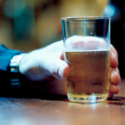Quit alcohol to lead a better life
Drinking alcohol has time and again proven to be hazardous for all. Several tragedies and unpleasant incidents can be credited to heavy drinking habits. Though it may seem difficult, the habit can be given up by following some simple and smart steps.
Every Year, thousands die in alcohol-related tragedies – acute alcohol poisonings, car accidents, drownings, falls and fights. While such tragedies are relatively rare, they underscore the multiple, far-reaching consequences of drinking. Compared to non-youth drinkers, frequent alcohoilists are 17 times more likely to miss a class/office, 10 times more likely to vandalise property and eight times more likely to get hurt or injured as a result of their drinking. Binge drinking also contributes to poor academic/work performance.
The second-hand effects of drinking also harm and violate the rights of others on campus/office/road/house. These range from automobile-related fatalities to serious injuries, from vandalism and physical assaults to problems of everyday life such as losing sleep and study time.
Drinking is also a women’s health issue. Heavy alcohol use coupled with inexperience with drinking puts young women in serious jeopardy for sexual assault. About 10 per cent of female students, who are frequent binge drinkers report being raped or subjected to nonconsensual sex, compared to only three per cent of non-binging female students. Furthermore, most campus rapes occur after heavy drinking. There’s a danger that after two pints of best bitter your libido will increase as your judgement decreases – they actually use the phrase ’beer goggles’ and that you are ’much more likely to have casual sex’.
Alcohol harms and binge drinking fall outs have to be described at school/college level itself:
General alcohol education programmes: Many schools provide alcohol education programmes. However, despite high levels of these general education programmes, fewer schools provide more targeted education to such groups as Greek-affiliated students or athletes, even though these students are known to represent above-average alcohol consumption and alcohol-related problem levels on many campuses.
Restrictions on the supply of alcohol: These measures include prohibiting keg delivery to dormitories and fraternity and sorority houses, restrictions on alcohol sales at intercollegiate sports events and tailgate parties.
Restricting alcohol advertisements: Some schools have restricted alcohol advertising at home sporting events and a few prohibit advertisements for off-campus bars or clubs in campus newspapers or on bulletin boards.
Living Environment: Some universities offer alcohol-free dormitories and living spaces.
Other measures: These includes school/college efforts in providing infrastructure to monitor and respond to students’ problem drinking. Some schools have a designated individual in charge of issues related to alcohol and other drug abuse and/or a task force, working group or coalition charged to work in the area of substance abuse. Some schools are conducting social norms campaigns to inform students about actual levels of drinking on campus, which in some cases are lower than what students think exists
In general: Current legal provisions awarding sentences can see drivers banned for up to two years and landed with hefty fines. A custodial sentence or a lifetime driving ban are among the measures, which could be looked at. Certainly, I feel we need to look at a more extreme form of punishment, as this kind of behaviour cannot be tolerated.
For those who have already built notoriety of drinking and have decided to leave they can use following advice:
There is a certain glamour to not drinking at all. If you are offered a drink explain that you have had your allocation. The trick is to cultivate the look of a man who has lived a bit, who has enjoyed a past of debauchery and excess. Everyone prefers the reformed sinner to the lifelong puritan. You can say you are a person who ’enjoys a drink’. But you don’t want a drink right then, thank you very much.
One fallout from decision to stop drinking will be that you lose some weight and even if you are not overweight but you will be very pleased to have got slimmer and it is definitely not because you eat less because you really do enjoy your food! The other thing is that you feel more robust in yourself and don’t pick up every little bug and cold going round, though you don’t know whether or not that is related to not drinking.
And – please work together to create a healthy community for every one – your wife; your children; your neighbours; your friends; your collegues and all those who you constitute the society.
source: meri news

